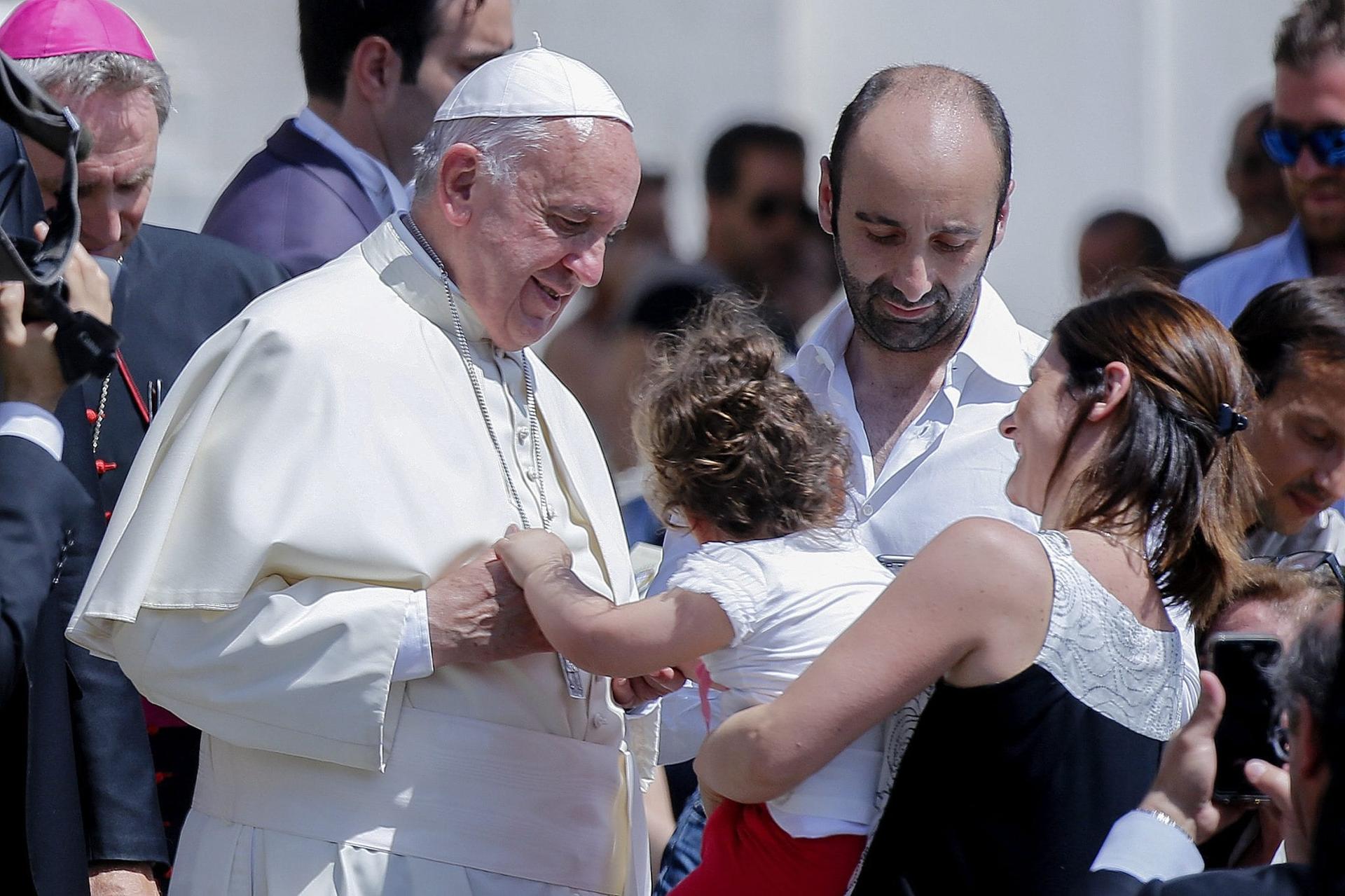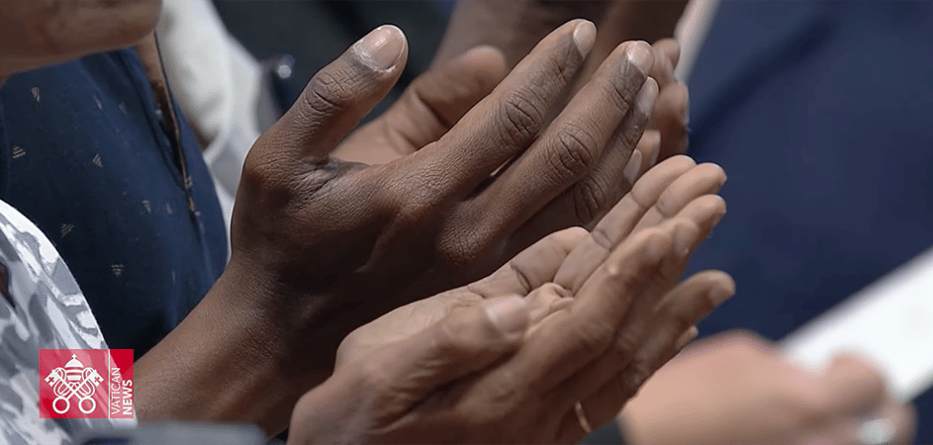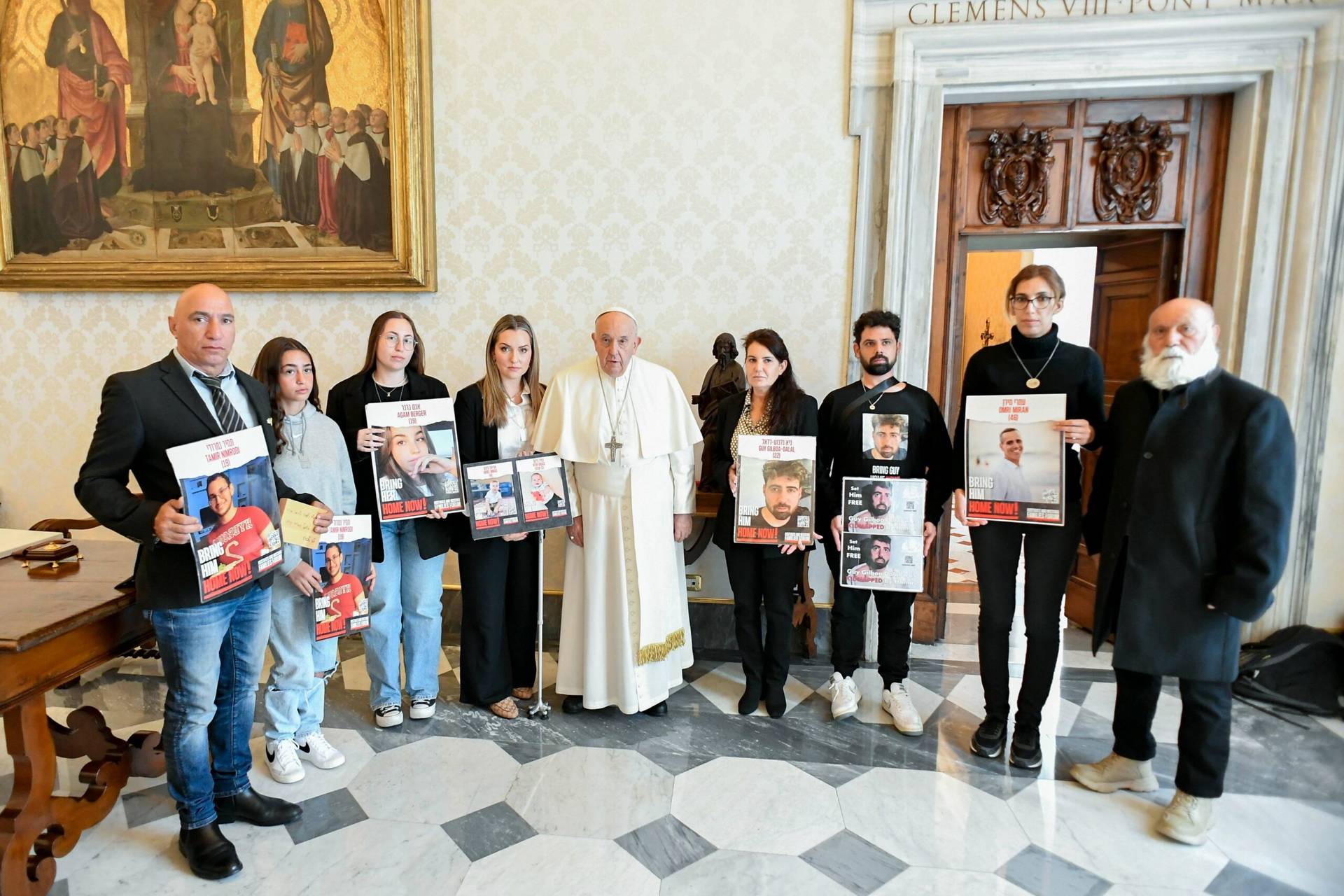Pope Francis’ penchant for off-the-cuff, opinionated comments have put the cat among the Catholic pigeons.
The latest round of speculative observations about the validity of marriage has set the Vatican press officials scurrying to clarify while conservative Catholic bloggers have continued their outcries— the more mild-mannered gently requesting clarification, and the more wild-mannered calling alarmed Catholics to panic stations while they condemn Pope Francis as a false prophet and an antipope.
What’s to be done?
First of all, Catholics should take a deep breath and take the long view. In our lifetimes we have seen two stellar popes. Pope St John Paul II was an international phenomenon. Straddling the twentieth century with all its horrors, a first class philosopher, author, actor and saint, he was a tough act to follow. Pope Benedict, in his own quiet way, filled the shoes of the fisherman as a top notch theologian, liturgist and pastor.
Both knew that the world hangs on every word of a pope. They usually kept to the script, and kept smiling and waving while they got on with the real business behind the scenes.
Pope Francis’ gifts are in the public arena as a populist, with the powerful healing gesture, love for the poor, simplicity of message and spirit. He faces the ambiguities, inconsistencies and realities of being Catholic in the modern world with a kind of candid courage.
He doesn’t want to shy away from the challenges and wants to talk about them. He has advised young people and priests to go out and be with the people, to take risks for the gospel and not to be afraid to “make a mess.” He’s following his own advice.
Those who are upset by Pope Francis and believe him not only to be a bad pope, but a “diabolical narcissist” or the “false prophet,” should read some church history. There are bad popes, to be sure.
Pope Benedict IX, who was accused of bestiality and sodomy, was pope three times during the eleventh century, having sold the office the first two times. St Peter Damian described him as “a beast from hell disguised as a priest.” During the tenth century Pope John XII was accused of rape, murder and theft and died after being beaten by the husband of the woman with whom he was having an affair.
Leo X and Alexander VI in the sixteenth century were the notoriously profligate Borgia and Medici popes, while Stephen VI at the end of the ninth century had his predecessor’s body exhumed, put on trial, mutilated and thrown into the Tiber.
Soon after I became a Catholic I was challenged by my Protestant friends about the existence of bad popes. I would answer that sure, out of the two hundred and sixty popes to have had only about ten who were genuine stinkers seemed to me to be a pretty good run. They were not impressed by my insouciance.
I would then proceed to explain what Catholics really believe about both the extent and the limitations of the papacy. First, we acknowledge that all the popes, like St Peter, were ordinary flawed and fallible men. Down through history, some were shining stars. Some were mild mannered and mediocre.
Some were fearless missionaries and martyrs, others were brilliant statesmen, scholars and saints. Some were stinkers. History shows that when a pope was a genuine monster, there were usually good Catholics who criticized him, and that’s okay.
We honor the pope as the successor of Peter, but that doesn’t mean we have to follow him blindly and uncritically.
Catholics do not claim that all the popes were saints. What we do claim, however, is that the Holy Spirit preserves the pope from error when speaking formally on matters of faith and morals. A pope might have been a thief and a murderer, but no pope taught that theft and murder were good.
The Catechism of the Catholic Church teaches that it is Christ who grants to the church a measure of his own infallibility, and goes on to explain, “The Roman Pontiff, head of the college of bishops, enjoys this infallibility in virtue of his office, when, as supreme pastor and teacher of all the faithful…he proclaims by a definitive act a doctrine pertaining to faith or morals. . . .”
There is an amusing scene in Evelyn Waugh’s Brideshead Revisited in which the would be convert and spiritually obtuse Rex Mottram is asked about papal infallibility. His instructor, Father Mowbray, recounts the tale, “Yesterday I asked him [Rex] whether Our Lord had more than one nature. He said: ‘Just as many as you say, Father.’ Then again I asked him: ‘Supposing the Pope looked up and saw a cloud and said ‘It’s going to rain’, would that be bound to happen?’ ‘Oh, yes, Father.’ ‘But supposing it didn’t?’ He thought a moment and said, “I suppose it would be sort of raining spiritually, only we were too sinful to see it.’”
Too many people, both within and outside the Catholic Church seem to hold the Rex Mottram understanding of papal infallibility.
Everything the pope says is not immediately infallible, and if a particular pope is fond of on-the-fly interviews, spontaneous phone calls and jocular, informal conversations with just about anybody, even more reason to relax, enjoy the gifts he brings to the papacy and then discuss and debate what he has said.
When a pope speaks off the cuff and off the record, it’s a good opportunity to remember how limited papal infallibility is, and to rest easy that if and when he (and the rest of the bishops) need to make a formal decision, the charisms of the pope’s office will help him step up to do what he must do.















